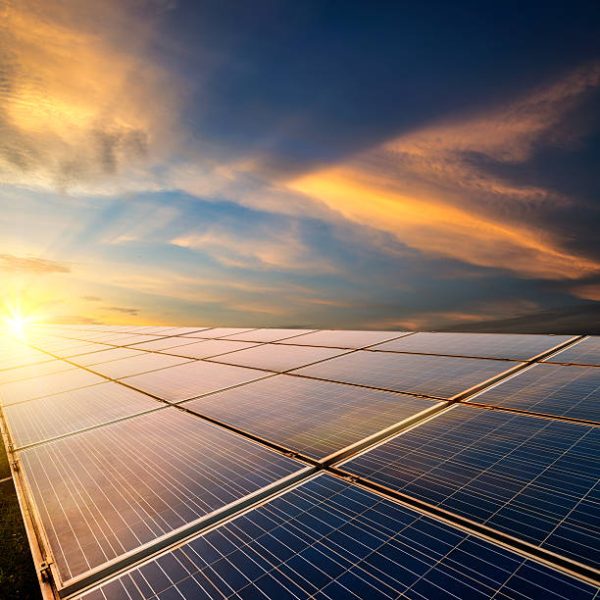
Solar panels or a gas generator? Which power system should I get for my home? Does a solar generator ensure enough power backup? Is it safe for outdoor use? Most homeowners have these questions when deciding on backup generators. Finding the right solution for power outages means having peace of mind. You can rest better knowing the household runs seamlessly even with the electric grid down. In this blog, we will draw an in-depth comparison between solar and traditional generators so you can choose an energy-efficient power storage unit for your home.
Solar-Powered Generators: Understanding the Basics
Standard solar generators include four key components:
- Photovoltaic (PV) panels
- A charge controller
- A rechargeable solar battery
- An inverter for converting voltage
The PV panels collect direct sunlight and route it through the controller. The charge controller controls the voltage and stores the energy in lithium-ion solar batteries for later use. When the power is out, the inverter converts the stored energy from DC to AC. Lastly, the generators use solar-powered battery backup systems to draw energy from storage to power the houses and supply energy outdoors.
The popularity of solar power systems has skyrocketed in recent years because they are convenient, reliable, and eco-friendly. Let’s weigh the pros and cons of solar PV and battery systems to decide whether solar generators can be a reliable power backup alternative.
Pros
- Free energy: Thanks to the sun, there’s an endless supply of free energy. Generators run on solar batteries, which get energy from the solar panels, giving access to clean, sustainable energy.
- Eco-friendly: Switching to solar generators is one way to stop environmental destruction. Solar batteries recharge from solar energy, reducing dependence on fossil fuels and minimizing carbon emissions.
- Lower operating costs: You don’t have to invest in gas or petrol to operate the equipment. Sunlight is abundant, and you can use it to recharge solar batteries.
- Low maintenance: Simply wipe the panels clean with a damp cloth, reposition them, and ensure the flow of electricity to the connectors and cables is not disrupted.
- Quiet performance: Unlike traditional generators, solar-powered inverters operate quietly. Thus, they can be used in residential areas without creating noise pollution.
Cons
- Installation costs: Solar panels are usually expensive and cover high installation charges, unlike traditional generators.
- Limited power capacity: Most solar generators provide partial power storage. Depending on the area you want to cover, you will need multiple generators for home backup power.
Fuel Generators: Understanding the Basics
Fuel generators convert propane, diesel, gas, or gasoline into electricity. They operate on the internal combustion principle, where a mixture of air and fuel is injected into the combustion chamber to compress and ignite with plugs. The efficiency of these generators is determined by the size of the unit and the fuel consumption rate.
Pros
- Immediate power: Unlike solar batteries, fuel generators don’t require time to recharge. They provide instant power as soon as they are activated.
- High power capacity: Fuel generators can supply more power for houses with large appliances and multiple HVAC systems. It’s ideal for heavy-duty usage in any weather condition.
- Low investment: Gas generators have lower upfront charges, which makes them more accessible to homeowners who need immediate power backup without hefty installation bills.
- Less dependence on sunlight: Generators don’t need solar energy to operate. Even in adverse weather conditions, traditional generators are a reliable power source.
- User-friendly: The mechanism is straightforward and can be operated using any fuel available, from gasoline to natural gas to propane.
Cons
- Environmental damage: Burning fossil fuels to create energy can produce greenhouse gases and contribute to global warming. During widespread power cuts, meeting high fuel demands can increase environmental concerns.
- Expensive operational costs: The ongoing fuel crunch has raised fuel costs to an all-time high. Procuring fuel will likely create a dent in the pocket.
- High maintenance: Generators have moving parts and engines. Maintaining or replacing them can be expensive.
- Noisy: Undoubtedly, generators are loud and create a noise disturbance in the surroundings.
Solar vs. Fuel Generators – The Verdict
Both solar and fuel generators have their share of pros and cons. But considering factors like noise level, power requirements, price, size, and environmental regulation, it’s safe to say that solar generators are more sustainable. Fuel generators, too, have good functionalities but significantly impact the environment and the wallet. Therefore, if you are looking for a cleaner and eco-friendly option, solar generators are what you need.




